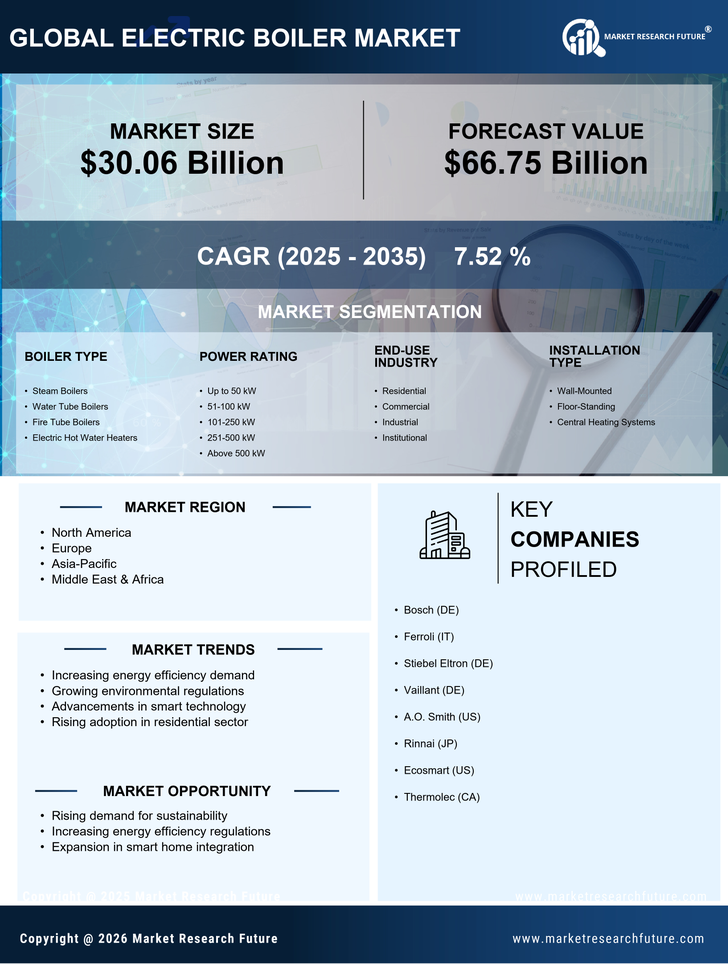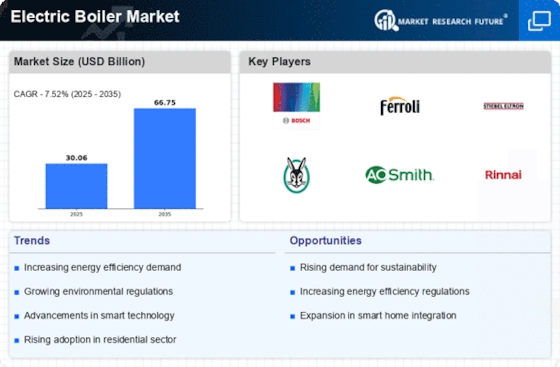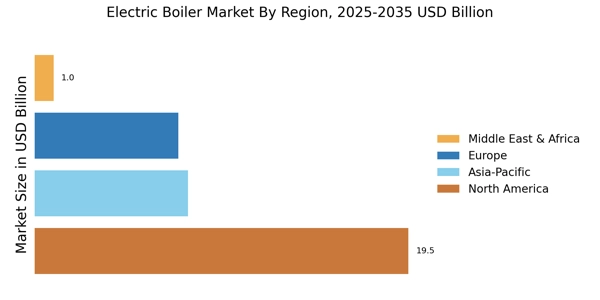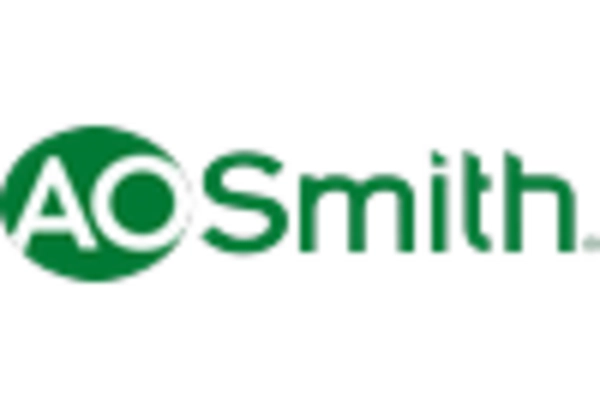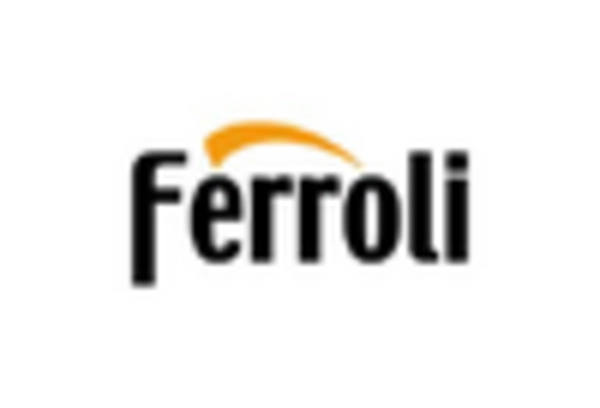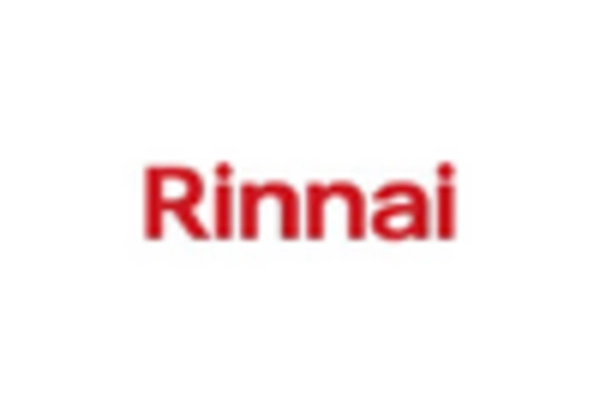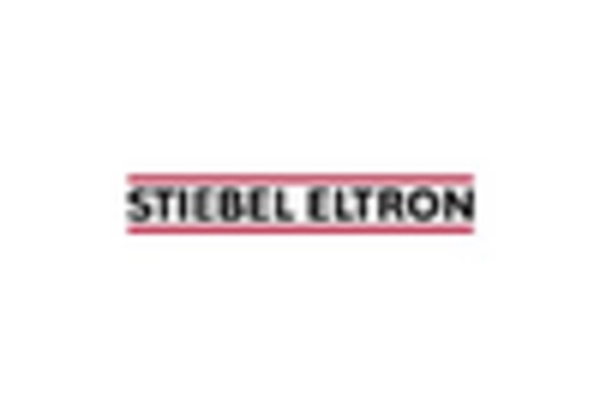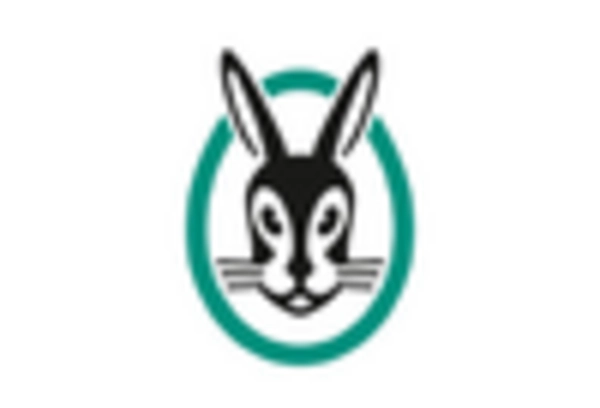Integration of Smart Technologies
The integration of smart technologies into the Electric Boiler Market is transforming traditional heating systems into intelligent solutions. Smart electric boilers equipped with IoT capabilities allow users to monitor and control their heating remotely, optimizing energy usage and enhancing convenience. This technological advancement aligns with the growing trend of home automation, where consumers seek seamless integration of devices for improved efficiency. Market data indicates that the adoption of smart heating solutions is expected to increase significantly, with projections suggesting a compound annual growth rate of over 20% in the next few years. As a result, the Electric Boiler Market is poised for expansion, driven by the demand for innovative and user-friendly heating solutions.
Rising Demand for Energy Efficiency
The Electric Boiler Market experiences a notable surge in demand for energy-efficient heating solutions. As consumers and businesses alike seek to reduce energy consumption and lower utility bills, electric boilers present an attractive option. These systems are designed to convert electricity into heat with minimal waste, thus enhancing overall efficiency. According to recent data, the energy efficiency of electric boilers can reach up to 99%, making them a preferred choice in various applications. This trend is further supported by the increasing awareness of environmental issues, prompting a shift towards cleaner energy sources. Consequently, the Electric Boiler Market is likely to witness substantial growth as more stakeholders prioritize energy efficiency in their heating solutions.
Government Incentives for Clean Energy
Government incentives aimed at promoting clean energy solutions are playing a pivotal role in the Electric Boiler Market. Various countries are implementing policies that encourage the adoption of electric boilers as part of their commitment to reducing carbon emissions. These incentives may include tax credits, rebates, and grants for consumers who choose electric heating systems over fossil fuel alternatives. Recent statistics reveal that regions with robust government support for clean energy technologies have seen a marked increase in electric boiler installations. This trend not only fosters market growth but also aligns with global sustainability goals. Consequently, the Electric Boiler Market is likely to benefit from ongoing governmental initiatives that promote environmentally friendly heating solutions.
Growing Awareness of Indoor Air Quality
The Electric Boiler Market is increasingly influenced by the growing awareness of indoor air quality and its impact on health. Traditional heating systems, particularly those that rely on combustion, can contribute to indoor air pollution, leading to health issues for occupants. In contrast, electric boilers operate without combustion, thereby eliminating harmful emissions and improving indoor air quality. This aspect is becoming a significant consideration for consumers, especially in residential and commercial settings. Recent surveys indicate that a substantial percentage of consumers prioritize air quality when selecting heating systems. As awareness continues to rise, the Electric Boiler Market is likely to experience heightened demand for electric boilers, which are perceived as a healthier alternative for indoor heating.
Shift Towards Decentralized Heating Solutions
The Electric Boiler Market is witnessing a shift towards decentralized heating solutions, driven by the need for flexibility and resilience in energy systems. As urbanization continues to rise, traditional centralized heating systems are becoming less viable due to infrastructure limitations and increasing energy demands. Electric boilers offer a decentralized alternative, allowing for localized heating that can be tailored to specific needs. This trend is particularly evident in residential applications, where homeowners seek efficient and adaptable heating solutions. Market analysis suggests that the demand for decentralized heating systems is expected to grow, with electric boilers playing a crucial role in this transition. Thus, the Electric Boiler Market stands to gain from the increasing preference for localized heating solutions.
